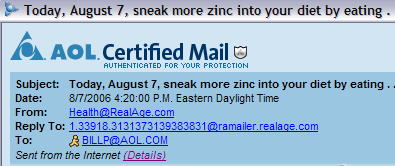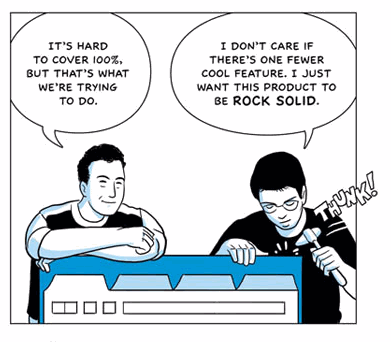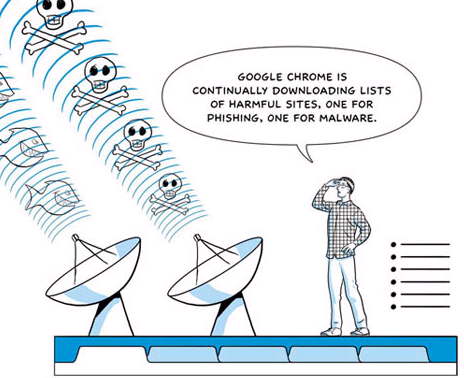It’s far to early for me to actually review of the new Google Chrome browser but my gut still says this beta is huge news. Based on what I’ve read so far, the real news about Chrome is that it proves the concept of a web based operating system will never work.
 As a web browser I like Chrome. It’s lighting fast and in the typical Google tradition it has a simple UI. It has a plain appearance like the Google home page and it’s not overly cluttered with useless icons I’ll never use. Each tab is a separate process which is a natural step in the evolution of a browser into a desktop platform. I especially love how they’ve speeded up the execution of javascript which I use on many of my web sites.
As a web browser I like Chrome. It’s lighting fast and in the typical Google tradition it has a simple UI. It has a plain appearance like the Google home page and it’s not overly cluttered with useless icons I’ll never use. Each tab is a separate process which is a natural step in the evolution of a browser into a desktop platform. I especially love how they’ve speeded up the execution of javascript which I use on many of my web sites.
So far, the most compelling articles you’ll read about Chrome are two topics which are diametrically opposed to each other, Web based applications and privacy.
While many may look at Chrome as just another browser don’t be fooled. It’s a direct attack at Microsoft and it’s control over the who sees what on the Internet and eventually the desktop.
eWeek’s Joe Wilcox writes…
“Chrome's threat to Microsoft is much bigger than Web browsing or a new Web-based application platform. For years, Google has encroached on Microsoft's most important territory: the Windows desktop. Chrome will be Google's best attempt yet to supplant the desktop.”
Computerworld’s Heather Haverstein wrote…
Google's Chrome aims to kill Windows, make Web the OS of choice
Even Google’s says…
We realized that the web had evolved from mainly simple text pages to rich, interactive applications and that we needed to completely rethink the browser. What we really needed was not just a browser, but also a modern platform for web pages and applications, and that's what we set out to build.
This all sounds great until you read what people are saying about Chromes Terms of Service.
For instance…
- When you type URLs or queries in the address bar, the letters you type are sent to Google so the Suggest feature can automatically recommend terms or URLs you may be looking for. If you choose to share usage statistics with Google and you accept a suggested query or URL, Google Chrome will send that information to Google as well. You can disable this feature as explained here.
- If you navigate to a URL that does not exist, Google Chrome may send the URL to Google so we can help you find the URL you were looking for. You can disable this feature as explained here.
I tend to agree with CNet’s Matt Also who wrote:
The primary problem with Google's terms of service (other than the auto-update feature that Ina also points out) is that Google allows itself too much, and restricts itself too little. I suspect that Google will actually do none of the evil privacy-busting practices that many will accuse it of preparing. My concern is that this language is so broad that Google could, if it were so inclined, invade user privacy on a grand scale. The terms of service allow it. Only Google's best intentions prevent it.
Even if I trust the folks currently in charge at Google, what about the future?
Googles Matt Cutts counters in his post:
“Preventing paranoia: when does Google Chrome talk to Google.com”
As the beta grows I’m hearing more and more concerns about privacy. What if every character you typed in to your Word document was sent to Microsoft? This is an inherent nature of running application on the web.
I’ll admit my customers/supporters are a little more concerned with privacy than your average user but I hear daily from folks worried about someone having access to their data. I just don’t see a future where your data exists on some a remote server under someone else’s control.
My newest quote; “From my cold, dead hard drive”.
Chrome users: To access Chromes first reported easter egg, type “about:internets” into the browser.
Update: Easter eggs thanks to our friends at CloudEight
about:version
about:stats
about:memory
about:plugins
about:histograms
about:cache
about:dns
about:network
about:crash
Download Google Chrome here
Labels: Chrome, Easter egg, Google, web2.0
 Bits from Bill
Bits from Bill



 Spammers continue to be concerned about my penis, my watch and my credit report but now they’re really worried about how I trim my cat’s nails. I also hear from lonely girls sitting in internet cafe’s. They obviously are aren’t aware of my need for Viagra.
Spammers continue to be concerned about my penis, my watch and my credit report but now they’re really worried about how I trim my cat’s nails. I also hear from lonely girls sitting in internet cafe’s. They obviously are aren’t aware of my need for Viagra.

 As a web browser I like Chrome. It’s lighting fast and in the typical Google tradition it has a simple UI. It has a plain appearance like the Google home page and it’s not overly cluttered with useless icons I’ll never use. Each tab is a separate process which is a natural step in the evolution of a browser into a desktop platform. I especially love how they’ve speeded up the execution of javascript which I use on many of my web sites.
As a web browser I like Chrome. It’s lighting fast and in the typical Google tradition it has a simple UI. It has a plain appearance like the Google home page and it’s not overly cluttered with useless icons I’ll never use. Each tab is a separate process which is a natural step in the evolution of a browser into a desktop platform. I especially love how they’ve speeded up the execution of javascript which I use on many of my web sites.

